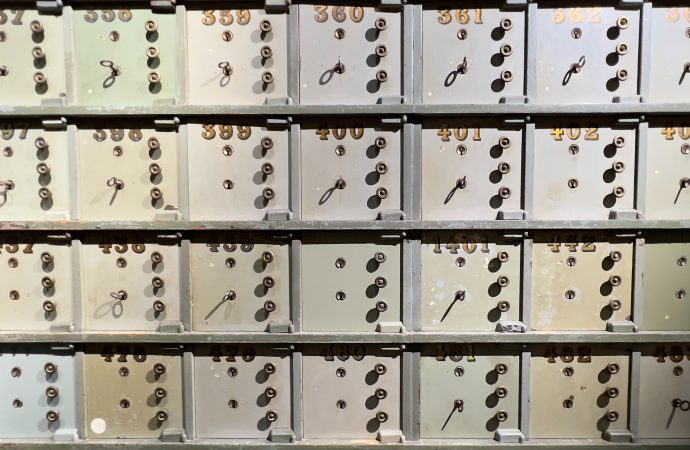Small business owners are the backbone of our economy, but what happens when their confidence wanes? Unfortunately, it often leads to a credit crunch that can be devastating for their business. Many small businesses struggle with obtaining credit in the first place, and even those who do may find themselves facing difficulties down the road.
Small business owners are the backbone of our economy, but what happens when their confidence wanes? Unfortunately, it often leads to a credit crunch that can be devastating for their business. Many small businesses struggle with obtaining credit in the first place, and even those who do may find themselves facing difficulties down the road. In this blog post, we’ll explore why these struggles happen and what you can do to fix them. So if you’re a small business owner feeling the strain of a credit crunch, keep reading!
Businesses Struggle to Get Credit
For small businesses, getting access to credit can be a real struggle. It’s not uncommon for lenders to require a personal guarantee from the business owner or for them to have strict requirements around collateral. This can make it difficult for many small businesses, who may not have substantial assets or strong enough personal finances.
In addition, many traditional lenders are hesitant to lend money to newer businesses that don’t yet have an established track record. They may also be more cautious about lending money during times of economic uncertainty.
Furthermore, there are often disparities in lending practices and access based on factors such as race and gender. Studies show that women- and minority-owned businesses are less likely to receive loans than their male- or white-owned counterparts.
All of these obstacles can create significant barriers for small business owners looking for credit. But there are alternative sources of funding available, including online lenders and community development financial institutions (CDFIs), which specialize in working with underserved communities.
Reasons for Business Credit Struggles
Small businesses are the backbone of any economy, and they require funds to grow and stay afloat. However, many small businesses struggle to get credit from lenders, which hinders their growth potential. There are several reasons why small business credit crunches occur.
Firstly, inadequate cash flow is one of the primary reasons for small business credit struggles. Cash flow issues can arise due to various factors such as low sales or delayed payments from customers.
Secondly, insufficient collateral can also be a hindrance for small businesses when applying for loans. Lenders may require collateral such as property or equipment to secure the loan amount in case of default.
Thirdly, poor credit history is another reason why lenders might reject applications from small businesses seeking financial assistance. Late payments on previous loans or outstanding debts can negatively affect a company’s credit score and make it challenging to obtain funding.
Economic downturns can cause lenders to tighten their lending criteria since they become more risk-averse during tough times. Small businesses may find it harder than usual during these periods since lenders tend not to take risks on new ventures that could potentially fail.
There are several reasons why small business owners face difficulties when trying to acquire financing. Understanding these obstacles is crucial for entrepreneurs who want their companies’ growth potential fully realized in today’s competitive market environment.
How to Fix Business Credit
If your small business has been struggling to obtain credit, there are steps you can take to improve your creditworthiness. First and foremost, it’s important to understand what factors affect your business credit score.
One of the most significant factors is payment history. Late payments or defaults will significantly damage your credit score. Make sure you pay all bills on time and in full whenever possible.
Another factor is debt utilization ratio. This refers to how much of your available credit you’re using at any given time. Keep this ratio low by paying down balances and avoiding maxing out lines of credit.
It’s also important to regularly check for errors on your business credit report and address them promptly with the appropriate reporting agencies.
Consider building relationships with lenders and suppliers who report positive payment histories to business credit bureaus.
By taking these steps, you can effectively fix your small business’credit crunches over time and pave the way for future financial success.
Conclusion
Small business credit crunches can have a significant impact on the success of a company. Understanding the reasons why credit struggles happen and how to address them is crucial for any business owner who wants to keep their company running smoothly.
By taking steps such as improving your personal credit score, managing cash flow effectively, and building relationships with lenders, you can help ensure that your business has access to the funding it needs when it needs it.
Remember that maintaining good financial health requires ongoing effort and attention. Stay vigilant about monitoring your credit scores and financial statements regularly so you can catch any potential issues early on before they become major problems.
With these tips in mind and a little bit of persistence, you can help safeguard your business against small business credit crunches and set yourself up for long-term success!

















Leave a Comment
Your email address will not be published. Required fields are marked with *